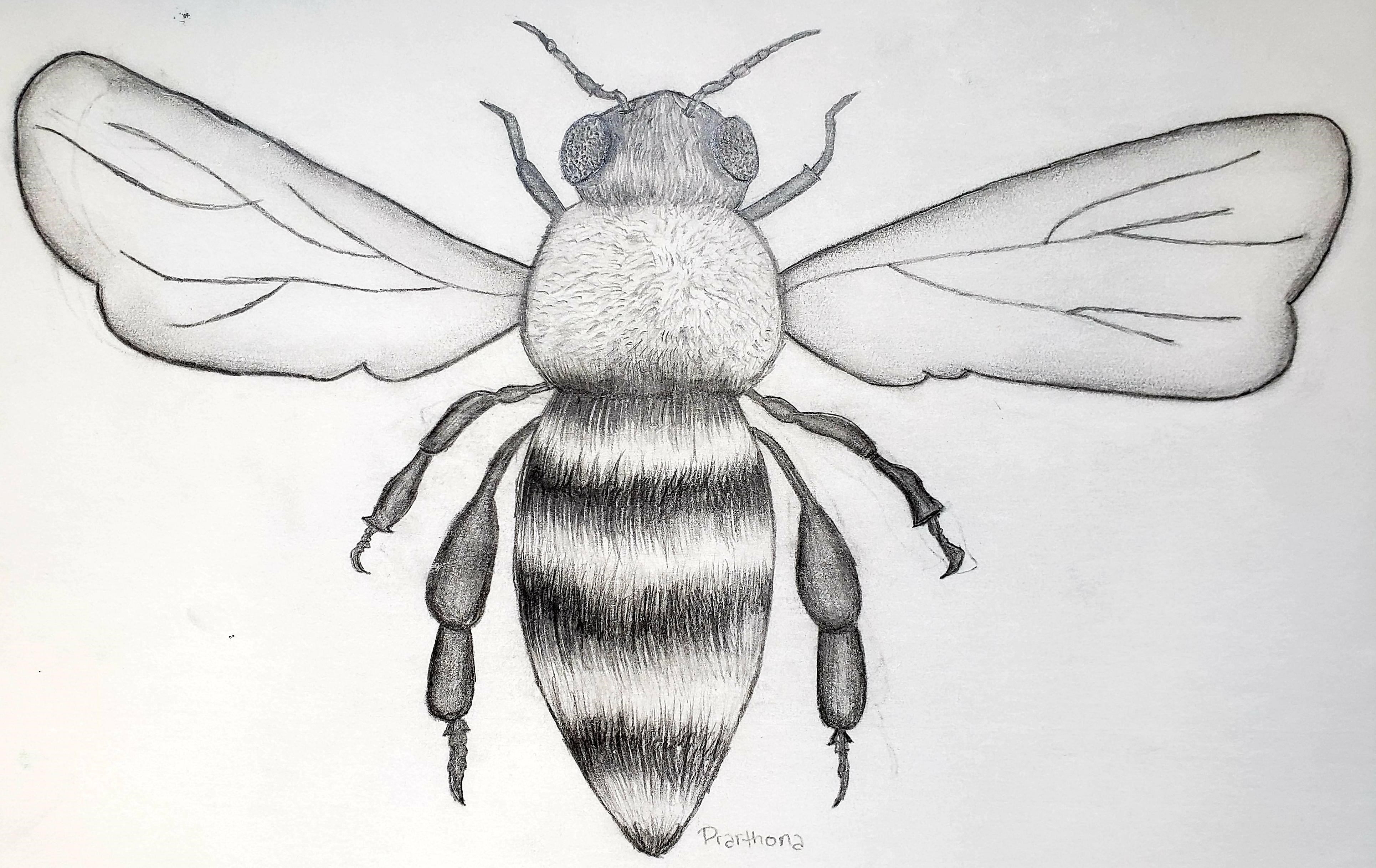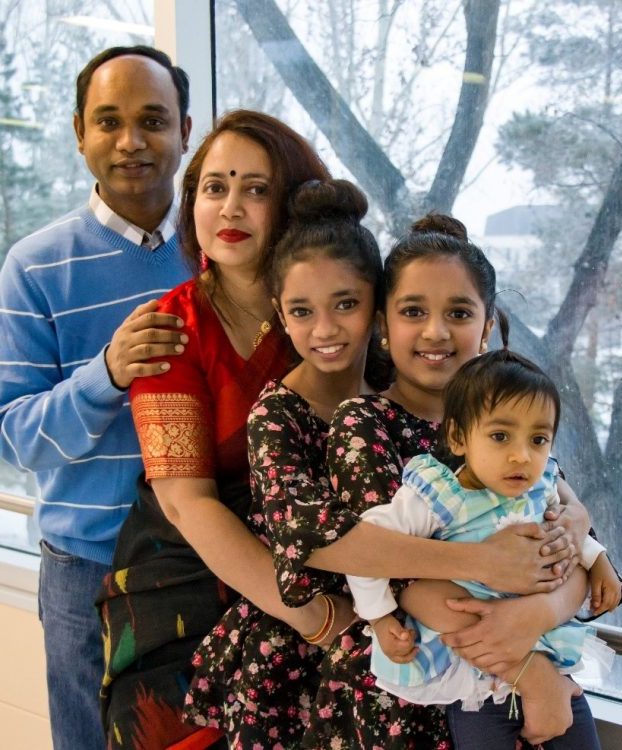
Bees are a significant part of our ecosystem and our daily lives. Art by Prarthona Datta.
Written by guest bloggers Ranjan Datta and Jebunnessa Chapola.
The COVID-19 pandemic poses serious challenges to many vulnerable communities, particularly Indigenous peoples, new immigrants, and refugees in Canada and throughout the world. Some of these vulnerable communities experience poor access to mental and physical healthcare, food insecurity, or lack of access to essential services and other key preventive sanitation measures, such as clean water, soap, and disinfectant. Despite all these challenges, my family’s autoethnographic research explored how Indigenous land-based practice can play a critical role in building the disaster resilience of both Indigenous people and non-Indigenous people. This land-based practice has potential to build resilience to Covid-19 fears and anxiety. My article provides personal stories of the methods through which immigrant children have adapted these land-based practices as a coping mechanism throughout the past several months of the pandemic. Not only is a relationship with the land fostered and strengthened, but an emphasis on family history strengthens family bonds and sense of belonging. We were surprised to learn how the land-based practice has potential to increase community wisdom and enhance cultural strengths as a powerful method of health promotion during this pandemic.
Our paper highlights that learning from Indigenous Elders and Knowledge-keepers can be helpful for building our resistance to the negativity, worry, and fear that seems to follow the pandemic. There are many ways to be active, hopeful, and joyful during the COVID-19 pandemic. As we have lived in Canada for the past 10 years, we have seen that many immigrants and refugees carry misconceptions about Canadian Indigenous history and culture. There is often limited knowledge about treaties, residential schools, cultural genocide, and reconciliation. Taking responsibilities for learning about Indigenous people and land are not only helpful to create meaningful opportunities for personal interactions between newcomers and Indigenous peoples, but it also creates many openings to build a sense of belonging and empowerment for new immigrants to Canada.
Our research emphasizes that if we do not place personal emphasis on protecting our environment, learning about our family histories, and embracing cultures, we may not be able to take care of ourselves. Therefore, for us, it is high time to take our own responsibility as an individual family and collectively as a community to care both for ourselves and for those around us; otherwise, there are many disasters like Covid-19 yet to come.

Ranjan Datta (PhD) is an Assistant Professor of Indigenous Studies at the Department of Humanities in Mount Royal University, Calgary. His research interest includes: community-led disaster resilience, environmental justice, Indigenous land-water rights, decolonization, Indigenous energy, and community-engage environmental sustainability.
Jebunnessa Chapola is PhD Candidate at the Women’s, Gender and Sexualities Studies at the University of Saskatchewan. Her research interest includes: cross-cultural women empowerment, cultural bridge among Indigenous and immigrant communities, antiracist theory and practice, and social and environmental justice.
The UTP Journals blog features guest posts from our authors. The opinions expressed in these posts may not necessarily represent those of UTP Journals and their clients.
Comments on this entry are closed.